
Lasik surgery is one of the best options when it comes to correcting various vision problems. People who have worn glasses all their life often opt for this type of treatment. However, not everyone is a suitable candidate for Lasik. Certain conditions have to be met, mostly regarding the nature of vision problems.
Lasik surgery uses laser technology to make adjustments in the eyes so the vision can be normal again. It is a generally safe procedure that involves minimal discomfort and little to no pain at all. It is done while the patient is awake. The recovery time usually takes only several days, after which the patient does not need to wear glasses again.
However, even though Lasik is not invasive and generally considered completely safe and fast, there are certain side effects to it, especially during the recovery period, which should be taken in consideration when deciding whether to undergo the procedure.
Side effects of Lasik surgery
Most side effects and complaints reported by persons who have undergone Lasik surgery are only temporary and relatively mild. Once the cornea is completely healed, there will be no disturbances or side effects at all.
During the Lasik procedure, the patient is given local anesthetic in form of eye drops. As soon as it wears off, the patient will start feeling dull, achy pain in the eye, which may range from mild to moderately severe. Some doctors prescribe pain killers to help with the pain, which will go away soon, as the cornea heals.
Another side effect of Lasik is redness of the eye, which is called sub-conjunctival hemorrhage. The redness occurs because some of the blood vessels in the eye have burst during the procedure, which is normal. The blood vessels with eventually heal and the redness will pass.
Clouded or blurry vision is also to be expected, especially in the first days after the procedure. This side effect rarely lasts longer than one week. Blurry vision occurs because cornea, which has been surgically treated, needs time to start doing its job at focusing.
Due to slight nerve damage during Lasik, the eye may not produce the sufficient amount of tears it needs for lubrication and for prevention of irritation. This will cause a feeling of dry eyes, which can be relieved with artificial tears.
Patients may also experience starbursts, halos and glares for several days following Lasik surgery. These vision problems may last up to one month and become more pronounced at night, so most doctors recommend avoiding driving at night during that period.


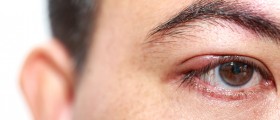


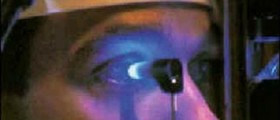





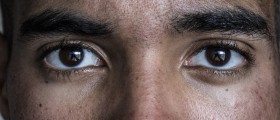



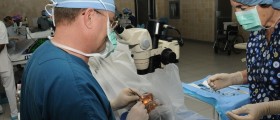
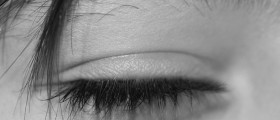
Your thoughts on this
Loading...